第48章 Chapter Seven(2)
If she were obliged, like so many others, to earn her living, she wouldn't have these vapours, that come to her from a lot of ideas she stuffs into her head, and from the idleness in which she lives.
Yet she is always busy," said Charles.
"Ah! always busy at what? Reading novels, bad books, works against religion, and in which they mock at priests in speeches taken from Voltaire. But all that leads you far astray, my poor child. Anyone who has no religion always ends by turning out badly."
So it was decided to stop Emma reading novels. The enterprise did not seem easy. The good lady undertook it. She was, when she passed through Rouen, to go herself to the lending-library and represent that Emma had discontinued her subscription. Would they not have a right to apply to the police if the librarian persisted all the same in his poisonous trade? The farewells of mother and daughter-in-law were cold. During the three weeks that they had been together they had not exchanged half-a-dozen words apart from the inquiries and phrases when they met at table and in the evening before going to bed.
Madame Bovary left on a Wednesday, the market-day at Yonville.
The Place since morning had been blocked by a row of carts, which, on end and their shafts in the air, spread all along the line of houses from the church to the inn. On the other side there were canvas booths, where cotton checks, blankets, and woollen stockings were sold, together with harness for horses, and packets of blue ribbon, whose ends fluttered in the wind. The coarse hardware was spread out on the ground between pyramids of eggs and hampers of cheeses, from which sticky straw stuck out.
Near the corn-machines clucking hens passed their necks through the bars of flat cages. The people, crowding in the same place and unwilling to move thence, sometimes threatened to smash the shop front of the chemist. On Wednesdays his shop was never empty, and the people pushed in less to buy drugs than for consultations. So great was Homais' reputation in the neighbouring villages. His robust aplomb had fascinated the rustics. They considered him a greater doctor than all the doctors.
Emma was leaning out at the window; she was often there. The window in the provinces replaces the theatre and the promenade, she was amusing herself with watching the crowd of boors when she saw a gentleman in a green velvet coat. He had on yellow gloves, although he wore heavy gaiters; he was coming towards the doctor's house, followed by a peasant walking with a bent head and quite a thoughtful air.
"Can I see the doctor?" he asked Justin, who was talking on the doorsteps with Felicite, and, taking him for a servant of the house--"Tell him that Monsieur Rodolphe Boulanger of La Huchette is here."
It was not from territorial vanity that the new arrival added "of La Huchette" to his name, but to make himself the better known.
La Huchette, in fact, was an estate near Yonville, where he had just bought the chateau and two farms that he cultivated himself, without, however, troubling very much about them. He lived as a bachelor, and was supposed to have "at least fifteen thousand francs a year."
Charles came into the room. Monsieur Boulanger introduced his man, who wanted to be bled because he felt "a tingling all over."
"That'll purge me," he urged as an objection to all reasoning.
So Bovary ordered a bandage and a basin, and asked Justin to hold it. Then addressing the peasant, who was already pale--
"Don't be afraid, my lad."
"No, no, sir," said the other; "get on."
And with an air of bravado he held out his great arm. At the prick of the lancet the blood spurted out, splashing against the looking-glass.
"Hold the basin nearer," exclaimed Charles.
"Lor!" said the peasant, "one would swear it was a little fountain flowing. How red my blood is! That's a good sign, isn't it?"
"Sometimes," answered the doctor, "one feels nothing at first, and then syncope sets in, and more especially with people of strong constitution like this man."
At these words the rustic let go the lancet-case he was twisting between his fingers. A shudder of his shoulders made the chair-back creak. His hat fell off.
"I thought as much," said Bovary, pressing his finger on the vein.
The basin was beginning to tremble in Justin's hands; his knees shook, he turned pale.
"Emma! Emma!" called Charles.
With one bound she came down the staircase.
"Some vinegar," he cried. "O dear! two at once!"
And in his emotion he could hardly put on the compress.
"It is nothing," said Monsieur Boulanger quietly, taking Justin in his arms. He seated him on the table with his back resting against the wall.
Madame Bovary began taking off his cravat. The strings of his shirt had got into a knot, and she was for some minutes moving her light fingers about the young fellow's neck. Then she poured some vinegar on her cambric handkerchief; she moistened his temples with little dabs, and then blew upon them softly. The ploughman revived, but Justin's syncope still lasted, and his eyeballs disappeared in the pale sclerotics like blue flowers in milk.